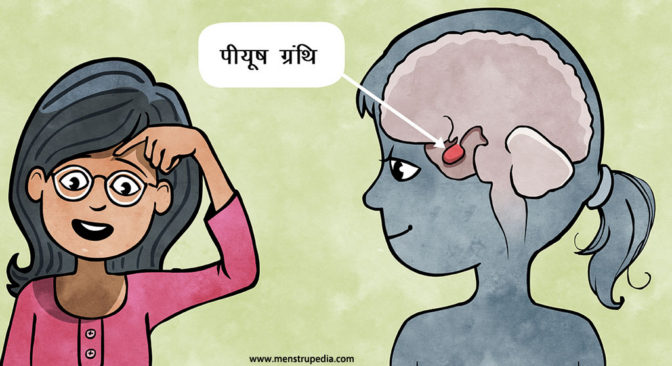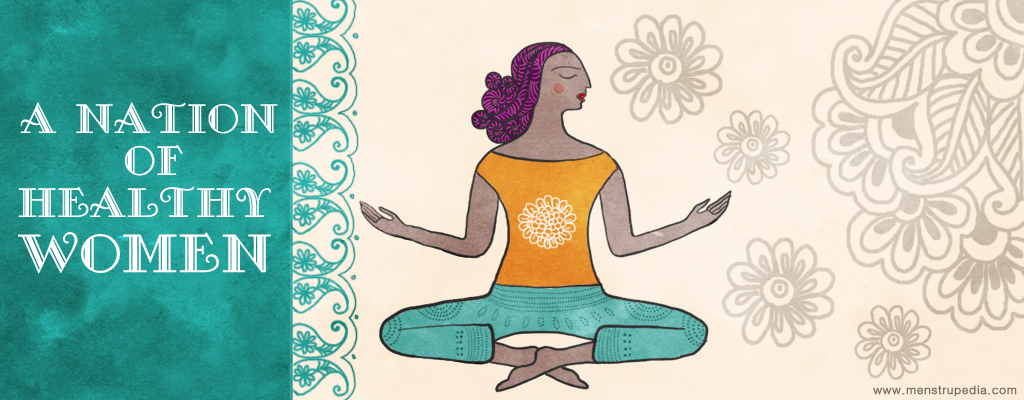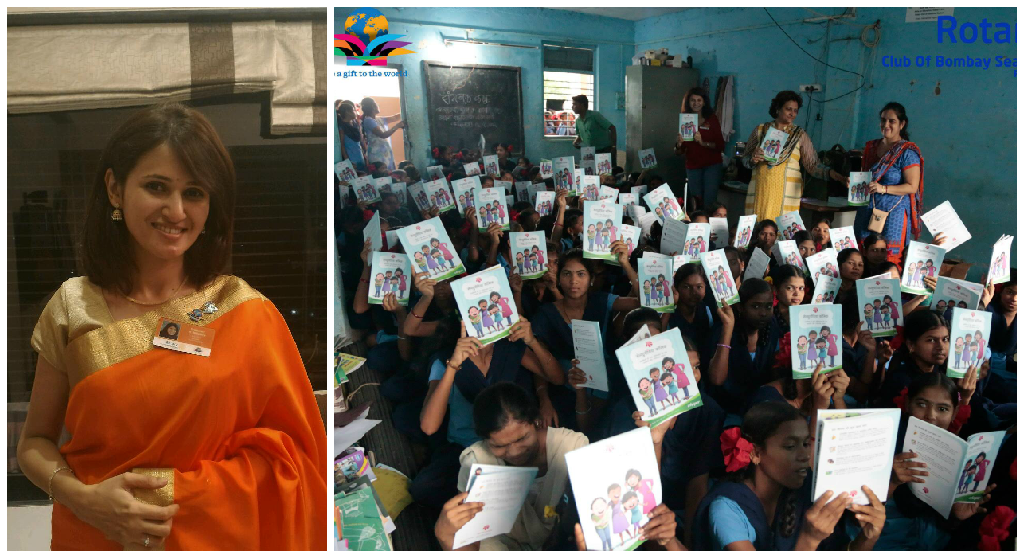If I were a marginalized girl living in the slum colony of Bapudham, Chandigarh at the time of my first period, I would probably be scared and nervous (much like every other young adolescent across the world) but I would also have an overwhelming sense of shame enveloping my natural female tendencies.
I walked into a shabby and poorly lit KitabGhar at the Yuvsatta NGO in Chandigarh with a determined mind and a fairly organized agenda. Today was unlike any other day at the KitabGhar because the little boys with their shy smiles were missing and instead, there was a huge influx of young, starry-eyed girls of Bapudham. I found the usual chitter-chatter of the girls a little more rushed and as they tried to hide their nervousness in loud whispers, I knew that this was going to be one hell of a day.

I started with a casual warm-up with the girls about basic terms like puberty, PMS, hygiene, etc. I further explained the basic dynamics of girls’ and boys’ pubertal growth periods and reiterated the importance of accepting and growing to love our female bodies despite some societal pressures and the general envy of young boy’s non-menstruating ones. Then the girls were randomly assigned a group with a volunteer and broke into discussions about their experiences and/or a lack thereof. I picked the age group of 11 years and above for this Hygiene Workshop, because a majority of these girls have poor domestic lives and due to the unfortunate taboo about all ‘female-things,’ these girls struggle to even question their basic anatomy in front of their own mothers and sisters. My pre-workshop research had brought Menstrupedia to my knowledge and after watching the video for myself, I knew there couldn’t be a better way of explaining the innate female cycle of birth to the girls.
I found that having two other female volunteers along with me brought a sense of belonging to the girls because while we were sharing our own experiences with the girls, they seemed to get more comfortable talking about their own, which came as a huge surprise because of their generally detached personalities. In our individual groups, we also urged them to speak about how many sisters they had and how they could help their younger siblings in the future to gather courage and discuss any future queries with their older siblings (which for them was unheard of!). Nimita, the older one of two sisters who have been regulars at KitabGhar all summer, shared with us that their mother married at the tender age of nine and due to her terrifying experience, she didn’t want her little girls to know about any of ‘this’ at all, until they absolutely had to or tried to seek this information elsewhere for their own good (for example: The Hygiene Workshop). After going through the whole breakdown of why and how their periods are carried out, we found that the girls seemed more confident and ready for the absolutely delightful video by Menstrupedia.
The expressions of utter bamboozlement and chaos on their faces are eternally priceless and I know they really enjoyed watching the video because of the question board we held afterwards. I am always supportive of questions and queries of any magnitude in my class and just knowing that even a little hesitation on their behalf was overcome by the continual support of their peers (as depicted in the video) made the whole workshop more communally appreciative of our strong, female bodies and the magic that they hold. The girls pointed out some envious differences between them and the young lads that they face, like every other girl, but also some prejudices that they are made to face at school for being girls with functional wombs and bestowed with the ultimate gift of nature. Ultimately, we boiled down to how crucial our role in existence is and that going through our cycles every month is only a tiny reminder of the precious life that we may bring into the world one day and leave it unchanged forever. Most of the girls at KitabGhar can’t afford to buy sanitary napkins so the other variation that is most popular amongst them is cloth. Hygiene and general upkeep is utterly essential and the girls were taught to use clean, soft cloth every time they needed to and to always wash it extensively and dry it in scorching heat after use. Although I will have little or no control over their matters from now on,I plan to start a campaign for Sanitary Napkins and a Hygiene Kit for the girls with private schools and nearby families who have plenty to go around. The question board ended with a fun activity, in which the girls were asked to describe an emotion that I, very clumsily acted out – a sort of a Pre and Post menstrual emotional roller-coaster charade, I reckon. They were also told that all these emotions are absolutely normal and justified at that time of the month and that they shouldn’t shy away from sharing such intimate details with close friends and family members.
The following day I held a short feedback session with the girls to help address any existing queries or concerns amongst them, and to sum up what they came up with was this:“The Hygiene Workshop was very great. I am not scared but happy instead.”
Simran, an avid learner and reader at KitabGhar said, “It helped us a lot. I am very excited because it is my new favorite video.”
The general consensus fell into the category of – “Didi, please buy us the Menstrupedia comics” or to download the video on each and every computer so that they could watch and re-watch it as per their convenience. The overall atmosphere after the workshop was positive and happy because now the girls knew more about themselves and could feel more relaxed in their own skin. They knew more about their bodies and felt confident in sharing the otherwise unfortunate taboo topic of their periods. The girls realized how essential their well-being was to us and to the creators of a transformative organization like Menstrupedia. If there is anything that I, as a young adult and aspiring health professional, take from such an experience, it is the ability to sympathize with and validate each and every individual and their intricate relationship with their bodies, the struggle that a country like India presents in recognizing their needs and wants along with an unbiased attitude towards every girl-child of India.
Author: Tanya Dhingra
A rising sophomore at Temple University, Philadelphia (USA) majoring in Health Information Management with a minor in Sociology of Clinical Health.
Editor: Divya Rosaline








